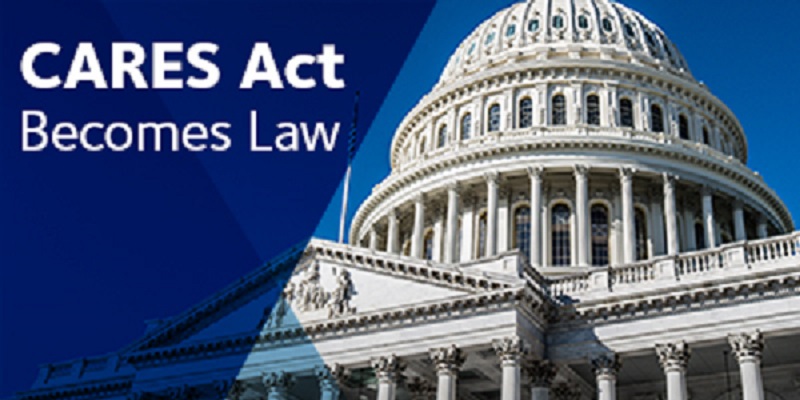What is the C.A.R.E.S. Act Relief Bill and How Can it Help You as a Homeowner?
The CARES (Coronavirus Aid, Relief, and Economic Security) Act is a new federal law and relief program for homeowners that may be experiencing severe financial hardship due to the coronavirus pandemic. This act provides a payment deferment option to those who have a federally-backed single-family mortgage or federally backed multi-family mortgages. Here are the three major updates that come from the CARES Act:
2. Mortgage Forbearance
3. COVID-19 National Emergency Partial Claim This an option to be used by servicers when the COVID-19 forbearance period ends. This partial claim will help eligible homeowners who have been granted special COVID-19 National Emergency forbearance to reinstate their loans by authorizing servicers to advance funds on behalf of homeowners. The partial claim will defer the repayment of those advances through an interest-free subordinate mortgage that the borrower does not have to pay off until their first mortgage is paid off. |
Do I have to make my first payment on my mortgage I recently closed on?
YES! This is a really important question. Regardless of the type of mortgage (i.e. Conventional, FHA, VA, USDA) or situation, if you don’t make your first payment on the mortgage you recently closed on, it will be considered FRAUD and there will be other ramifications that come from that. Even if you have lost your job or recently been furloughed from your employer due to the current market situations or COVID-19, you need to do everything in your power to make that first payment. After that, the forbearance options can come into play as well as other options to support you. |
Who can qualify for this mortgage relief assistance?
|
If you are not facing an immediate financial hardship, keep making your mortgage payment if you can.
A forbearance is a last resort option. If you have the means to continue making your payments, we highly suggest that you continue doing so. Mortgage servicers are taking a lot of calls and will be helping those who are experiencing extreme financial hardship. We will also discuss other repayment options this bill covers later. |
You must call your mortgage servicer to inquire about your forbearance options
1. Call your mortgage servicer and ask them what forbearance or hardship options may be available to you. You don’t need to submit any documents upfront to qualify for this financial relief option, however, we would advise you to keep documentation from your employer if you have been furloughed. Keep a record of any bank statement or paystubs that would support your petition for assistance later down the road. 2. Set up a written agreement before you stop making your mortgage payments. Ask your servicer to provide written documentation of your agreement and make sure you are clear on the terms. This forbearance option is to be used as a last resort. |
Mortgage Forbearance and Repayment Examples to Guide You:
Here are examples of what your servicer may discuss with you as options:
1. Pause your payments and pay them later: Your servicer may allow you to defer your payments up to one year. Your missing mortgage payments may be added on to the back end of your mortgage, therefore, extending your loan term.
2. Pay partial payments: Your servicer may allow you to reduce your payments by half for up to three months. After those three months, you will be responsible to pay the missing payments within one year.
For all of these options above, interest on the paused amounts will continue to accrue until you repay them.
What to do once you've set up your mortgage relief option with your servicer:
- Keep written documentation of your agreement.
- Continue to check your monthly mortgage statement.
- Watch your credit report: Check your credit report to make sure everything looks correct and that there are no errors or inaccuracies. If you do not set up a forbearance agreement and you stop paying your mortgage, it can negatively affect your credit.
- When your income is restored, contact your servicer and resume paying your mortgage.
FAQ's / Frequently Asked Questions:
Will getting a forbearance or deferring my payments affect my credit score?
If you set up a payment plan or forbearance agreement, your loan servicer will not charge you late fees or contact the credit bureaus with late payment information. However, due to the ever-changing economic climate, we advise you to contact your mortgage servicer for the most up to date information.
Is a forbearance the best option for me?
We highly encourage you to seek and exhaust all other options before pursuing a mortgage forbearance. This option is to be used as a last resort for those who are experiencing extreme financial hardship due to the coronavirus pandemic. Talk to your servicer if you have any questions about your repayment options.
Is my state offering additional mortgage relief options?
Many states are considering various types of mortgage relief options and additional assistance for homeowners. We recommend that you check your state’s government website for details.
References and Additional Resources:




